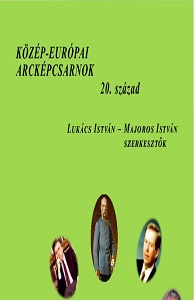Egy szabálytalan szociológuspálya
An Irregular Sociologist Carreer
Gyula Rézler and the Hungarian Social Science
Author(s): Eszter Bartha
Subject(s): Social history, History and theory of sociology, Post-War period (1950 - 1989), Transformation Period (1990 - 2010)
Published by: Eötvös Loránd Tudományegyetem, Új-és Jelenkori Egyetemes Történeti Tanszék
Keywords: Gyula Rézler; Hungarian labor sociology; historical objectivity; labor stu-dies; working–class communities; survey; ethnography;
Summary/Abstract: In the 20th century Central European history it is unfortunately not sur-prising if a scholar is forced into exile and he or she can complete an aca-demic career in a country far away from the place where the research has been started. Gyula Rézler was relatively fortunate in this respect because after the change of regimes he was invited to Hungarian universities, later he even resettled in Hungary and as a belated recognition, he was elect-ed a member of the Hungarian Academy of Sciences. His most important achievement in Hungarian sociology is that he has laid the foundation of the scientific methodology of the Hungarian labor history and he elabo-rated the methods which the researchers use even today. He conducted this research still in Hungary, further in a period when labor history was mistaken for „Communism”, and any form of the political left was con-nected with the short-lived Hungarian People’ Republic. A considerable political and human courage and commitment was needed for a young man of „bourgeois” descent to choose the formation of the Hungarian working class for his topic of dissertation and continue the research with the mapping of the work and life conditions of the contemporary work-ers. He also elaborated a method for data collection, which served as a model for later factory case studies. Rézler was a left-wing thinker but he was never a Communist; as his study on the Soviet peasantry demon-strates, although he recognized certain social achievements of the Soviet regime, he clearly recognized the social and human consequences of the dictatorship and the omnipotent state violence and control. With the hardening of the Hungarian Stalinist dictatorship led by Mátyás Rákosi Rézler had to leave the country, and he continued his scholarly career in the United States. The article introduces his life, his labor research, his political and academic thinking and his impact on the Hungarian labor so-ciology. His results in the establishment of the Hungarian labor history and his commitment to academic objectivity remain to be remarkable achievements even if this ethos could not be reconciled with the social and academic climate of the postwar era in Central Europe.
Book: Közép-európai arcképcsarnok. 20. század
- Page Range: 17-34
- Page Count: 18
- Publication Year: 2018
- Language: Hungarian
- Content File-PDF

